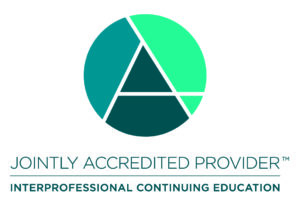Treating Adult Children of Emotionally Immature Parents
Help Your Clients Take Back Their Lives from the Toxicity of Emotionally Immature People
About This Course
The children of emotionally immature parents often live with deep internal conflict that can last long into adulthood.
Growing up with caregivers who are selfish, detached from reality, or emotionally unavailable can leave their children with an incomplete and shamed self-image, impaired self-esteem, emotional constriction, and morbid feelings of severe non-entitlement.
But though they may be experiencing these struggles internally, frequently their behavior tells a different story.
The children of emotionally immature parents often live with deep internal conflict that can last long into adulthood.
Growing up with caregivers who are selfish, detached from reality, or emotionally unavailable can leave their children with an incomplete and shamed self-image, impaired self-esteem, emotional constriction, and morbid feelings of severe non-entitlement.
But though they may be experiencing these struggles internally, frequently their behavior tells a different story.
Because throughout their childhood they have often had to take on more responsibility to compensate for their parents, they may move through the world with the appearance of ease and capability.
On their first day of therapy, they often show up as insightful, competent, and kind — giving the impression of being a generally low-need client.
And because they lead with their strengths in this way, they can give the practitioner the sense that they are not struggling with feelings of anger, loneliness, betrayal, or abandonment as much as they truly are.
Over time, as the therapist begins to become more of an authority figure in the eyes of the client, they can become more deeply mired in their resistance and buried in their internalized story that their feelings are harmful and inherently “bad.”
Therapy can begin to feel more superficial and meaningful change can feel further and further away, leaving clinicians frustrated and clients disillusioned with the process.
Practitioners need an approach that helps clients carve a path for deep emotional work — one that allows them to work collaboratively with their clients to get to the root of their pain and heal their childhood wounds. And that’s exactly what you’ll learn inside our new course, Treating Adult Children of Emotionally Immature Parents.
Inside the Course
In this groundbreaking live online course, you’ll learn a powerful approach for meeting the particular needs of the adult children of emotionally immature parents (ACEIP) population.
This unique training is led by Dr. Lindsay Gibson, author of Amazon bestseller, Adult Children of Emotionally Immature Parents, and Recovering from Emotionally Immature Parents. Through her writing, training, and clinical work, Dr. Gibson has become the leading expert in how to treat these newly identified adult children in psychotherapy.
In the first session of this four-part course, you’ll learn clinically useful information on the characteristics of emotional immaturity and how these traits create painful and damaging effects in all intimate relationships — especially between parent and child.
The second session will explore how these ACEIPs present in psychotherapy and why they can be deceptively difficult to treat. You’ll learn the unique psychoeducational, emotional needs of these clients, showing how parental emotional immaturity tends to prevent them from living from their authentic selves.
In session three, Dr. Gibson will teach practical interactional and self-awareness skills for clients, giving you the tools to help them interact successfully with EIPs and protect themselves from emotional takeovers and coercions. You’ll learn specific interventions for empowering ACEIPs in interactions that in the past would have aroused fear, shame, guilt, or self-doubt.
You’ll leave the final session with hand-picked emotional processing interventions from several well-researched therapy models — including emotionally focused therapy (EFT), accelerated experiential dynamic psychotherapy (AEDP), and internal family systems (IFS) — to heal different aspects of the client’s therapeutic needs. This special integration of different approaches is designed to resolve specific emotional and cognitive issues that arise from growing up with these parents.
Throughout this course, you’ll learn how to promote self connection and intimacy in your clients, help them break through resistance and connect to their vulnerability, and break them free of the altered consciousness and distorted beliefs that emotionally immature interactions can instill. Join this exciting new course and learn how to help your clients develop a deep and grounded sense of self so they can step fully into the lives they want.
Bonus offer: The first 100 people to enroll in this course will receive a free digital copy of Self-Care for the Children of Emotionally Immature Parents. Limit one per person. Digital copies will be distributed via email containing a unique link on the first day of the course, October 26, 2021.
This training is worth 8 CE credit hours if attended live. While we can only provide CE to those who are present – i.e. logged in – for live presentation(s), all Praxis webinars are recorded for later viewing. Registrants may then access these recordings at any time for up to six months from the conclusion of the training to which they pertain.
Prior to registering, please review speaker-planner conflict of interest disclosures and complete CE information.
Schedule
Session 1: October 26, 2021, 1 pm-3 pm EDT
Introduction to emotional immaturity
The nature of EI relationships
Two types of ACEIPs
Avoiding emotional takeovers
Session 2: November 2, 2021, 1 pm-3 pm pm EDT
Understanding the specific emotional and interpersonal effects of EIPs on ACEIPs
How the effects of EIPs on ACEIPs impact lives, and what should be noticed and focused upon in therapy
Session 3: November 9, 2021, 1 pm-3 pm pm EST
Three-pronged practical training with clients to overcome disempowering legacy of growing up with EIPs
Using more conscious and skillful interactions and boundary-setting with EIPs
Session 4: November 16, 2021, 1 pm-3 pm EST
Learn techniques from established emotionally-oriented and memory reconsolidation therapies for deep emotional processing and emotional trauma release
Help clients choose healthiest path forward with or without their EIPs
Learning Objectives
Participants will be able to:
- Identify defining characteristics of emotional immaturity (EI) and maturity, and be able to explain the developmental factors of emotional immaturity and how trauma leads to emotional immaturity.
- Identify and describe the interpersonal, neural, and societal impact of emotional immature parents, EI significant others, EI bosses and leaders, and others in positions of power and influence.
- Identify and treat the psychological and long-term developmental impact on children and clients of having had EI parents or other significant EI relationships (internalizers, externalizers).
- Discuss how to teach clients how to recognize and avoid entrapment in Emotionally Immature Relationship Systems (emotional coercion, emotional contagion, emotional takeovers, distortion fields, and EI Drama Triangles).
- Identify ways to implement awareness of EI into therapeutic approach with clients to help them reclaim a strong sense of self, emotional autonomy, mental freedom, connection with their inner guidance system, freedom from distorted loyalties and morality, and the confidence to self-express and emotionally protect themselves around EIPs.
- Identify ways to coach clients to overcome self-defeating habits of passivity, dissociation, inferiority and rage reactions learned in early relationships with dominating EIPs.
- Identify and describe the three-pronged approach to treating ACEIPS.
- Discuss how to teach clients practical interactional skills with EIPs (Maturity Awareness Approach) to prevent emotional takeovers and set boundaries without feeling bad about it.
- Apply traumatic emotional-processing and memory reconsolidation techniques from effective affect-based therapeutic models (IFS, EFT, RLT, AEDP, and Coherence Therapy).
- Describe how to assist clients in choosing the level of interaction or relationship with the EIPs that works best for them going forward in their life.
Continuing Education
Please review complete CE and conflict-of-interest disclosure information prior to registering. This live online course is sponsored by Praxis Continuing Education and Training and is approved for 8 CE Hours by the following listed below. There was no commercial support for this activity. None of the planners or presenters for this educational activity have relevant financial relationship(s) to disclose with ineligible companies whose primary business is producing, marketing, selling, re-selling, or distributing healthcare products used by or on patients.
Praxis CET maintains responsibility for the program with the CE approvals outlined below:
-
Joint Accreditation:
 In support of improving patient care, Praxis Continuing Education and Training, Inc is jointly accredited by the Accreditation Council for Continuing Medical Education (ACCME), the Accreditation Council for Pharmacy Education (ACPE), and the American Nurses Credentialing Center (ANCC), to provide continuing education for the healthcare team.
In support of improving patient care, Praxis Continuing Education and Training, Inc is jointly accredited by the Accreditation Council for Continuing Medical Education (ACCME), the Accreditation Council for Pharmacy Education (ACPE), and the American Nurses Credentialing Center (ANCC), to provide continuing education for the healthcare team. - Nursing: Praxis Continuing Education and Training, Inc designates this activity for a maximum of 8 ANCC contact hours.
- Physicians: Praxis Continuing Education and Training, Inc designates this live internet activity for a maximum of 8 AMA PRA Category 1 Credits™. Physicians should claim only the credit commensurate with the extent of their participation in the activity.
-
Psychologists:
 Continuing Education (CE) credits for psychologists are provided through the co-sponsorship of the American Psychological Association (APA) Office of Continuing Education in Psychology (CEP). The APA CEP Office maintains responsibly for the content of the programs.
Continuing Education (CE) credits for psychologists are provided through the co-sponsorship of the American Psychological Association (APA) Office of Continuing Education in Psychology (CEP). The APA CEP Office maintains responsibly for the content of the programs. - Social Workers: As a Jointly Accredited Organization, Praxis Continuing Education and Training, Inc is approved to offer social work continuing education by the Association of Social Work Boards (ASWB) Approved Continuing Education (ACE) program. Organizations, not individual courses, are approved under this program. State and provincial regulatory boards have the final authority to determine whether an individual course may be accepted for continuing education credit. Praxis Continuing Education and Training, Inc maintains responsibility for this course. Social workers completing this course receive 8 clinical continuing education credits.
- Drug and Alcohol Counselors:This course has been approved by Praxis Continuing Education and Training, Inc, as a NAADAC Approved Education Provider, for 8 CE hours. NAADAC Provider #165310, Praxis Continuing Education and Training, Inc, is responsible for all aspects of its programming.
-
National Counselors:
 Praxis Continuing Education and Training, Inc. has been approved by NBCC as an Approved Continuing Education Provider, ACEP No. 6759. Programs that do not qualify for NBCC credit are clearly identified. Praxis Continuing Education and Training, Inc. is solely responsible for all aspects of the programs.
Praxis Continuing Education and Training, Inc. has been approved by NBCC as an Approved Continuing Education Provider, ACEP No. 6759. Programs that do not qualify for NBCC credit are clearly identified. Praxis Continuing Education and Training, Inc. is solely responsible for all aspects of the programs. - NY Social Workers:Praxis Continuing Education and Training, Inc is recognized by the New York State Education Department’s State Board for Social Work as an approved provider of continuing education for licensed social workers #SW-0467
- NY Counselors:Praxis Continuing Education and Training, Inc. is recognized by the New York State Education Department’s State Board for Mental Health Practitioners as an approved provider of continuing education for licensed mental health counselors. #MHC-0198.
- NY Psychologists:Praxis Continuing Education and Training, Inc. is recognized by the New York State Education Department’s State Board for Psychology as an approved provider of continuing education for licensed psychologists #PSY-0002.
Prerequisites
Audience
Recommended Reading
None
References
Gibson, L. C. (2019) Recovering from Emotionally Immature Parents. Oakland, CA: New Harbinger
Gibson, L. C. (2015) Adult Children of Emotionally Immature Parents. Oakland, CA: New Harbinger
Gibson, L. C. (in press, September 2021) Self-Care for Adult Children of Emotionally Immature Parents. Oakland, CA: New Harbinger
Gibson, L. C. (2000) Who You Were Meant to Be. Far Hills, NJ: New Horizon Press
Refund and Cancellation Policy
We understand, sometimes things come up!
Praxis will offer a full refund to registrants of both live and live-online trainings who cancel their registration prior to 14 days before an event/course. If a registrant would like to cancel their registration within 14 days of the event, no refund will be offered. However, the registrant can elect to receive a credit to be used toward another Praxis event within 1 calendar year.
